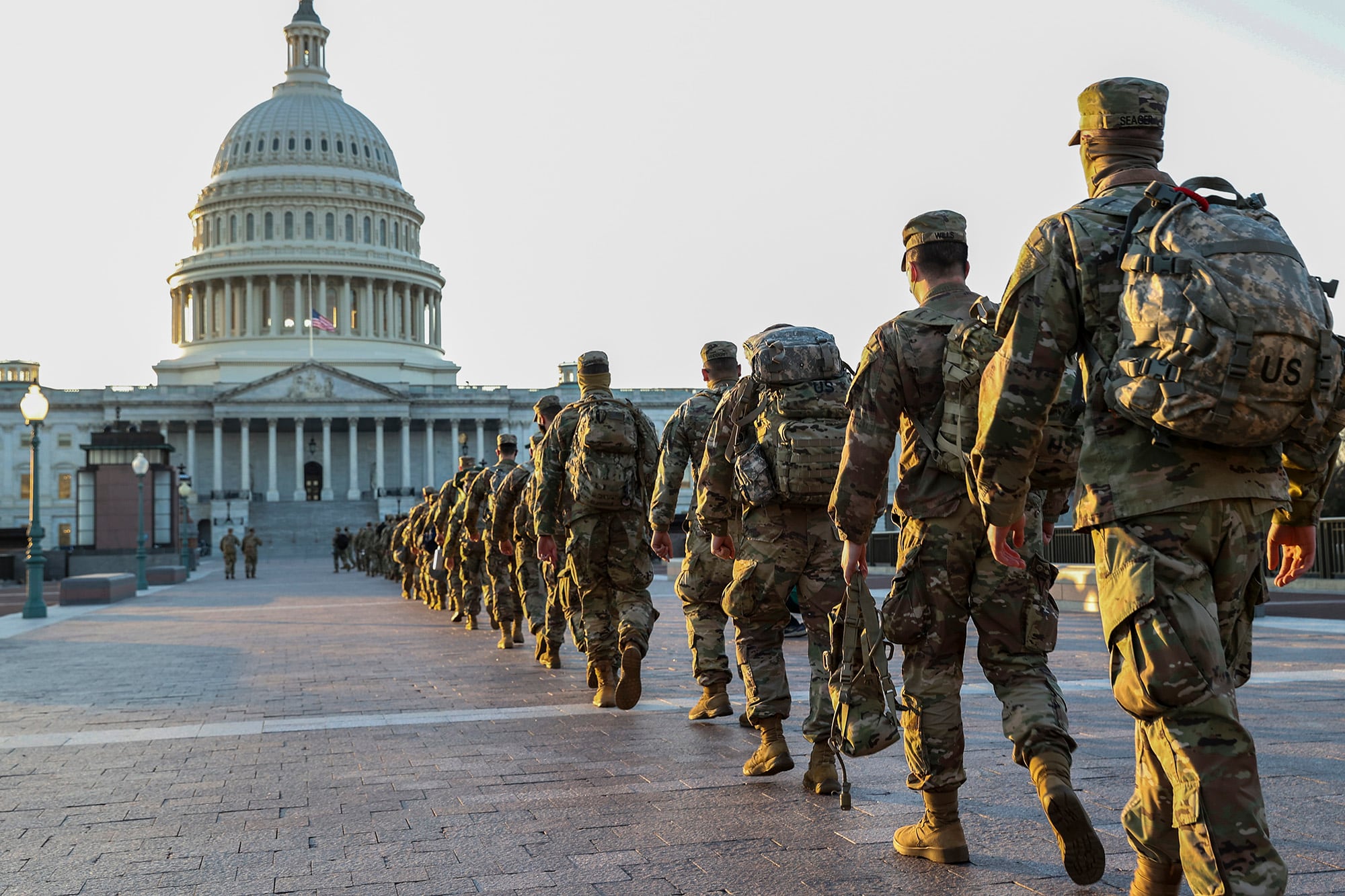“To do more with less” is a mantra every woman and man who served in the U.S. military is familiar with. To the National Guard, it’s a reality that impacts each member of the organization every fiscal year. Recently, however, this reality began diminishing morale, damaging talent retention, and impeding organizational efficacy and readiness; thus, making service as a “Citizen Soldier” a costly endeavor.
In layman terms, the National Guard is a collection of part-time, organized militias that can be mobilized for active service under state or federal orders. In contrast with full-time service branches, the Guard plays an important and unique role in the sense that it can - and often does - respond to domestic events as well as missions overseas. From the nation’s inception to the on-going Global War on Terror, this special duality has earned the organization a notable record of service in American history.
To adequately grasp its evolution and ever-growing portfolio in the post 9/11 era, consider the following:
1. Guard troops respond to natural and man-made disasters on extremely short notice.
2. Thousands of National Guard troops have been rotating to the U.S.-Mexico border since 2018 in support of the Department of Homeland Security’s Customs and Border Protection.
3. National Guard troops continue to work closely with local, state, and federal agencies across the country in dealing with COVID-19.
4. The National Guard is the go-to military force for addressing civil disturbances and civil unrest.
And for the foreseeable future, the list is projected to grow.
Last month, the Chief of the National Guard Bureau, Gen. Daniel Hokanson, acknowledged this fact in the following manner: “Given the uncertain future and budget priorities, we expect the Department of Defense (DOD) to rely on the National Guard more, not less.”
But the added responsibilities have not been coupled with the level of support necessary to sustain a high operational tempo and back-to-back mobilizations. And even though the warning lights are blinking red, little is being done.
The latest example of this conundrum was Congress’s unhurried effort to reimburse the Guard for the cost of responding to the Jan. 6 Capitol insurrection.
Left with a hefty $520 million bill, Guard units were on the verge of losing funds needed for specialized schools, annual training, and weekend drills. Such a development would have trickled down throughout the force, affecting retirement points, career progression, and operational readiness.
More recently, U.S. Census Bureau data pointed to troubling trends that highlight the precarious position Guard troops increasingly find themselves in. For instance, hunger among Guard members is more than double the national rate, with nearly one in five reporting “sometimes” or “often” not having enough to eat. Regardless of household income, education, age or race, Guard troops report more food insecurity than any other group. In a country where defense spending has already surpassed a whopping $700 billion a year, these revelations are unconscionable.
How can an organization so instrumental to U.S. national security and defense be so underfunded, under-equipped, and lacking in much-needed material support for its members?
The fact remains that the National Guard operates like any organization in the civilian world: to function properly, it needs talented people, from all walks of life, to not only join its ranks, but to also stay and grow as its future leaders. How do you accomplish this? By providing adequate support, allocating sufficient funds, and creating opportunities for your members to succeed.
Reality, nevertheless, has been less promising.
To put it simply, Congress’s tepid response to the challenges Guard members face constitutes a dereliction of duty. When elected leaders abrogate their responsibility to servicemembers, our nation and our communities end up paying the price.
It is no secret that economic hardship and the rising costs of healthcare, amplified by a once-in-a-lifetime pandemic, swayed enough Guard troops to continue serving, at least for the time being. However, to remain competitive in the labor market, the DoD must adopt a long-term view of talent retention.
In short, can the Guard continue to retain talent at the level needed in the era of “Great power Competition” when more lucrative, time-saving opportunities present themselves in the civilian world?
Handing out challenge coins is not supporting the troops.
Prompting hashtags on social media is not supporting the troops.
Performative patriotism at political rallies and football stadiums is not supporting the troops.
From a legislative standpoint, “Supporting the Troops” entails enacting meaningful policy prescriptions that address the needs and concerns of those who serve our nation in more ways than one.
Congress can start by enacting change that empowers Guard members with respect to the biggest and most challenging impediments to serving. This includes passing legislation that provide additional employment protections for Guard troops; creating incentives to hire Guard members in the public and private sectors; allocating sufficient funds to support educational programs and initiatives in the Guard; and ensuring that servicemembers are fairly compensated for mandatory work outside of regularly scheduled training. Last but not least, congressional leaders can also address one of the chief complaints among rank-and-file members of the force: pay and benefit parity between Guard, reserve, and active-Duty troops.
Having navigated civil unrest, political turmoil, challenging operational environments, and a global pandemic, the National Guard is at a crossroads. It can continue operating under archaic structures, depleted budgets, and bureaucratic red tape, which will ultimately prove to be gratuitously detrimental. Or it can evolve into an institution that thrives by attracting the best and brightest talent our nation has to offer. Unfortunately, it remains unclear which direction our elected leaders will chart for the organization.
Views expressed in this article are those of the author and do not reflect the official policy or position of the National Guard, the U.S. Army, the Department of the Army, the Defense Department, or the U.S. government.
Ali Nayyef is a former Iraqi refugee, a US Army veteran, and a Tillman Scholar. He served in the 29th Infantry Division of the Virginia Army National Guard between 2014-2020. He holds a bachelor’s degree from Christopher Newport University and a masters from George Mason University.
Editor’s note: This is an Op-Ed and as such, the opinions expressed are those of the author. If you would like to respond, or have an editorial of your own you would like to submit, please contact Military Times senior managing editor Howard Altman, haltman@militarytimes.com.





